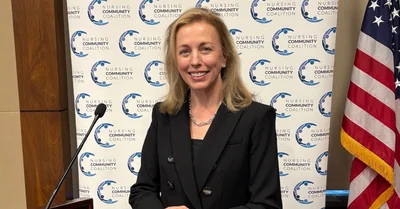U.S. Commerce Secretary Gina Raimondo traveled to Texas recently, where she spoke about the importance of developing a workforce for the manufacturing jobs of the future, the DOE announced recently.
Raimondo visited Austin Community College (ACC) to "see first-hand how they are equipping students with the knowledge and skills for the manufacturing jobs of the future," the DOE reported March 3. The visit to ACC came a week after Raimondo spoke at Georgetown University's School of Foreign Service on the importance of a "trained workforce and the need for chip manufacturers, construction companies, and unions to work toward the national goal of hiring and training more workers in this critical industry."
“To revitalize our technology and manufacturing sectors, we need to start with training and inspiring the next generation of engineers and scientists. We’re calling on colleges and universities to triple the number of graduates in semiconductor-related fields, including engineering, over the next decade,” Raimondo said in the report.
The DOC announced its first funding opportunity for the CHIPS and Science Act, which allocated $39 billion for manufacturing incentives to encourage companies to build and expand production facilities in the U.S.
"Chips form the foundation of every advanced technology," the department states in the announcement, "including the smartphone, cloud computing service, new cars, medical devices, and the weapons system we use today."
Raimondo hosted a roundtable discussion with local businesses and leaders after her visit to ACC to discuss how the CHIPS and Science Act is protecting U.S. national security, strengthening supply chains, and creating well-paying jobs, according to the DOC. She also participated in a discussion at the National Digital Inclusion Alliance on closing the digital divide and announced that the National Telecommunications and Information Administration is seeking input on how to structure nearly $2.7 billion in Digital Equity Act grant programs to close the gap.
“President Biden ensured that digital equity was at the center of expanding high-speed Internet access to everyone in America when he signed the Bipartisan Infrastructure Law,” Raimondo said in the announcement. “We need to hear directly from those who are most impacted by the systemic barriers that prevent some from fully utilizing the Internet.”









